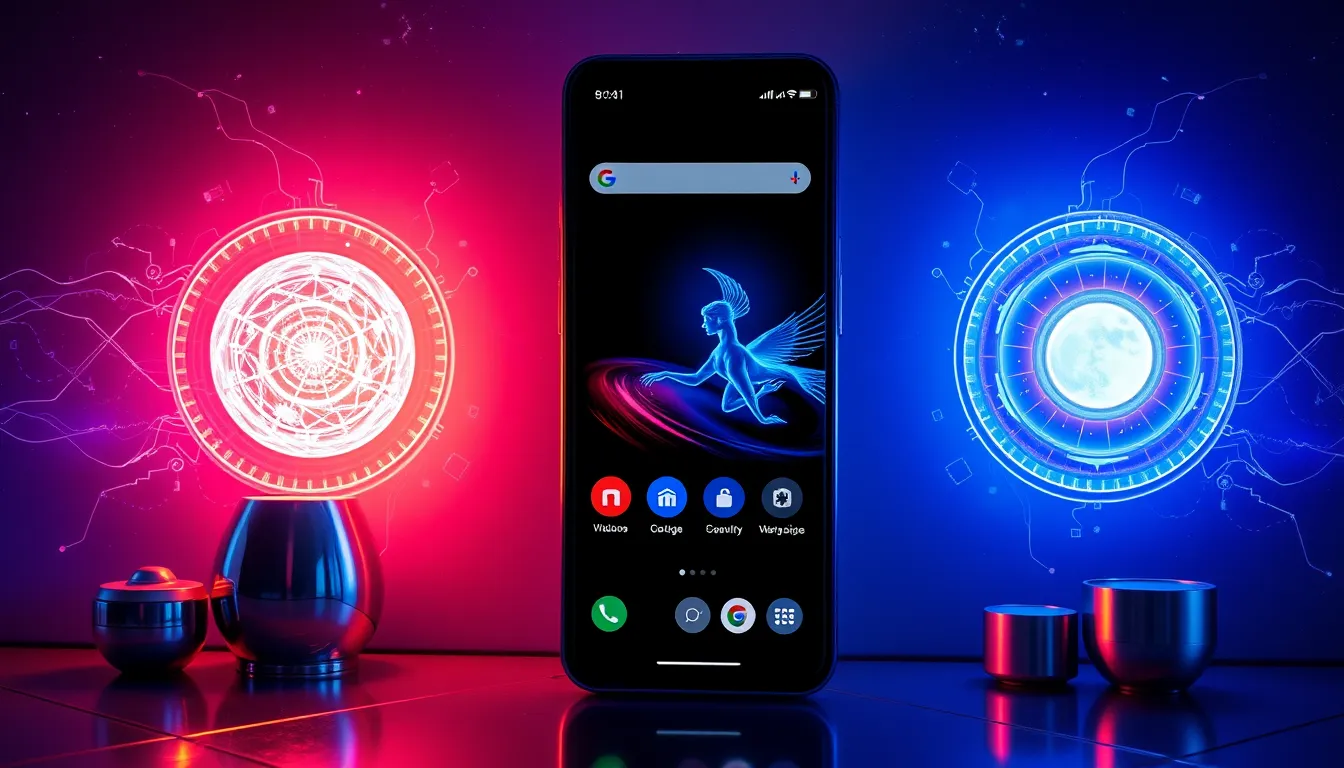Now Reading: Revolutionary OpenAI Hardware Transforms Consumer Gadgets
-
01
Revolutionary OpenAI Hardware Transforms Consumer Gadgets
Revolutionary OpenAI Hardware Transforms Consumer Gadgets

Revolutionary OpenAI Hardware Transforms Consumer Gadgets
Recent technological breakthroughs have consistently reshaped our digital landscape, and the latest buzz centers on OpenAI hardware. Recent reports indicate that OpenAI is moving beyond software to design a compelling suite of consumer devices that promise to redefine everyday interactions. With the integration of advanced AI, this emerging range—from smart speakers to augmented reality glasses, AI voice recorders, and smart wearable pins—is poised to transform how we interact with technology.
The Rise of OpenAI Hardware in Consumer Devices
OpenAI, best known for its groundbreaking contributions in artificial intelligence, is now reportedly extending its expertise to hardware. By merging robust AI algorithms with tangible consumer gadgets, the company aims to offer products that are not only innovative but also highly functional. This strategy leverages the deep knowledge behind AI to deliver smarter solutions that enrich user experiences.
According to industry sources like The Verge, insiders suggest that OpenAI is planning to introduce a series of devices that will push the envelope of what consumer technology can achieve. The focus on OpenAI hardware is apparent as the company looks to create a product lineup that blends style, interactivity, and advanced AI features.
OpenAI Smart Speaker with AI Voice Technology
One of the flagship products in this new line is the OpenAI smart speaker with AI voice technology. This device is expected to stand apart from conventional voice assistants by harnessing OpenAI’s state-of-the-art voice recognition and natural language processing capabilities. The smart speaker will offer hands-free operations, real-time data processing, and an intelligent interface that makes everyday tasks simpler.
Key benefits of the smart speaker include:
- Seamless voice command integration
- Real-time information retrieval
- Enhanced interactivity with connected devices
Augmented Reality Glasses: Merging Real and Digital Worlds
In the realm of wearable technology, the rumored augmented reality glasses could revolutionize personal and professional environments alike. These smart glasses are expected to overlay digital information on the real world, opening up a new world of interactive possibilities. Imagine receiving context-aware notifications or viewing digital enhancements as you navigate your day. By combining digital data with the tangible world, these glasses underline OpenAI hardware’s commitment to a more integrated future.
This innovative wearable offers a glimpse into the merging of real-life environments with digital enhancements, epitomizing the next generation of interactive technology.
AI Voice Recorder: Revolutionizing Documentation
Another exciting component of the upcoming product line is the AI voice recorder. Unlike traditional voice recorders, this device integrates real-time transcription, sentiment detection, and contextual analysis. Imagine a tool that not only records conversations but also provides actionable insights by analyzing tone and context instantly.
The advantages of the AI voice recorder include:
- Real-time transcription for accurate documentation
- Contextual analysis to capture nuances in conversation
- Enhanced productivity in journalism, business meetings, and academic settings
Wearable Pin for Device Control and AI Access
Perhaps the most intriguing innovation is the wearable pin accessory, designed to function as a discreet interface for controlling smart devices. This small yet powerful accessory may allow users to trigger AI functionalities on the go, streamlining everyday interactions with technology. Whether used as a fashion statement or a functional tool for device control, the pin underscores the versatility of OpenAI hardware in modern consumer electronics.
The Broader Impact of OpenAI Hardware Innovations
The potential expansion into hardware marks a significant strategic pivot for OpenAI. Historically recognized for its software achievements, the move towards consumer devices represents a broader ambition to embed AI in every facet of daily life. The opportunity to blend smart hardware with intelligent software spells transformative changes across various industries.
To summarize, here are the key innovations expected from OpenAI hardware:
- OpenAI smart speaker with AI voice technology
- Augmented reality glasses that blend digital and real data
- AI voice recorder with enhanced real-time transcription
- Smart wearable pin for convenient device control
This transformative approach not only advances consumer convenience but also raises critical discussions about privacy and data security. With increasingly interconnected devices, safeguarding personal information is paramount. OpenAI’s journey into hardware innovation will undoubtedly be observed closely by both advocates and critics, as privacy safeguards become just as important as technological prowess.
Privacy, Security, and the Future of OpenAI Hardware
Alongside these innovative advancements, there are growing concerns regarding privacy and data security. As consumer devices become more intelligent and interconnected, ensuring that robust safeguards are in place to protect user data is essential. Stakeholders are keenly monitoring how OpenAI will address these critical issues while maintaining the technological integrity of its products.
Industry experts and consumers alike are excited about this convergence of technology and practicality, which has significant implications for the future of AI-powered consumer technology. For further details on OpenAI and its evolving projects, please visit the official OpenAI website.
Conclusion
In conclusion, the next generation of OpenAI hardware represents a compelling vision of the future where advanced AI is seamlessly integrated into everyday devices. With a dynamic lineup that includes a revolutionary smart speaker, immersive augmented reality glasses, a next-generation AI voice recorder, and a multi-functional wearable pin, OpenAI is set to redefine consumer technology. This convergence of AI capabilities and innovative hardware paves the way for a more interactive, intuitive, and secure digital ecosystem. As more details become available, enthusiasts and industry analysts will undoubtedly watch OpenAI’s journey with great interest, anticipating a significant leap forward in how we interact with technology.

























